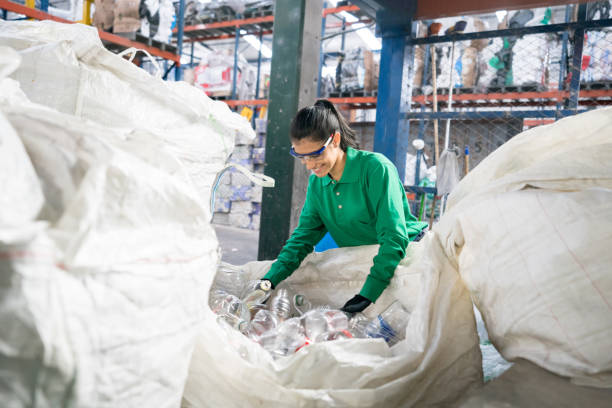Solar Solutions for Efficient and Sustainable Energy Use
Energy bills keep rising, and traditional sources can’t keep up. Solar power offers a reliable way to cut costs and stay efficient. More homes and businesses are now switching to clean energy.
It’s not just about savings, but also about long-term stability. Solar systems are getting better, faster, and easier to use. This makes it the right time to explore better energy options.
Check out these solar solutions for sustainable energy and see which setup fits your needs best.
Rooftop Panels for Homes
Rooftop solar panels are the most common entry point for homeowners. They capture sunlight during the day and convert it into electricity for household use. These systems reduce dependency on the grid and help lower monthly bills.
Even small systems can cover essential needs like lighting, appliances, and charging. Over time, the savings can offset the initial setup cost. Panels are built to last, with minimal upkeep.
Maintenance usually involves occasional cleaning and checks. With proper planning, homes can even generate surplus power. This extra energy can be stored or sold back to the grid.
Solar-Powered Water Heating
Solar water heaters use energy from the sun to warm up water. These systems are efficient and cut down heating costs. Unlike electric heaters, they operate quietly and require less electricity.
The setup includes collectors, storage tanks, and controls. Once installed, most systems run with little human input. They work best in sunny areas but can still operate in cooler weather.
Solar heaters are ideal for residential and light commercial use. They reduce the load on electric systems. This makes them a smart addition to any energy-saving plan.
Battery Storage Systems
Battery storage is crucial for managing energy flow. It lets you store excess power for later use, especially at night or during outages. These systems pair with solar panels and improve energy reliability.
Stored energy helps reduce peak-hour usage. This saves money when electricity rates are high.
Batteries support the grid by offering a backup supply. Modern systems are compact and efficient.
Installation depends on your energy needs and panel output. With storage in place, homes and businesses gain more control over their energy.
Off-Grid Solar Systems
Off-grid setups are useful in remote or rural areas. They operate independently of public utilities.
This means no monthly bills or service interruptions. These systems need a combination of panels, batteries, and inverters.
Sizing depends on daily energy use. With the right design, they can power homes, farms, or cabins. Off-grid users must plan carefully to avoid shortages.
Backup generators can help during low-sun days. These systems offer full energy independence with no reliance on the grid.
Solar-Powered Lighting
Outdoor lighting is easy to convert to solar. It’s commonly used for pathways, gardens, signage, and public spaces. Solar lights collect power during the day and light up automatically at night.
Most systems come with built-in panels and batteries. They are quick to install and don’t need wiring. This makes them cost-effective for large outdoor areas.
Maintenance is minimal, mostly just cleaning panels. Many models now come with motion sensors for extra efficiency. They improve safety and cut energy costs at the same time.
Solar Air Conditioning
Cooling systems can also run on solar energy. This reduces the heavy electricity use tied to air conditioners.
Solar AC units combine efficient compressors with solar panel input. They are suitable for homes and office spaces in hot regions.
Some units work as hybrids, switching to grid power when needed. These setups lower energy bills during summer. They also help stabilize demand on the electrical grid.
Installation can vary based on building size. Long-term, they offer both comfort and savings.
Portable Solar Devices
Portable solar gear is useful for travel, camping, or emergencies. These include chargers, lights, and mini panels.
They are lightweight and easy to carry. Small devices can charge phones, laptops, or small appliances.
Many come with built-in batteries for energy storage. This makes them perfect for areas with limited access to power. They also promote safe, clean energy in outdoor settings.
Setup is usually plug-and-play. They’re a smart way to stay connected off the grid.
Solar Energy for Agriculture
Farms can cut costs and improve efficiency with solar systems. Applications include powering irrigation, water pumps, and cold storage.
These systems reduce fuel use and operational costs. Solar panels can be installed on rooftops or over fields.
Shade structures with panels help protect crops. Remote monitoring tools also enhance performance. Systems can be scaled based on land size and usage.
Agricultural solar improves productivity without harming the environment. It also reduces reliance on fuel-based machines.
Solar Carports and Parking Lots
Parking structures with solar panels make use of large open spaces. These carports provide shade and generate power at the same time.
They are often found in malls, campuses, and public lots. Some include charging stations for electric vehicles.
Installation boosts energy output without changing the building structure. These systems feed into on-site power use or the local grid. They help cut operational costs for large facilities.
With rising demand for EV support, solar carports are gaining ground. They also improve land use and energy return.
Solar Energy for Businesses
Businesses benefit from large-scale solar installations. These setups help offset high power use in offices, stores, and warehouses. Panels can be mounted on rooftops or on surrounding land.
With the right design, energy output can meet a large portion of daily needs. This leads to major savings in operational costs. Over time, solar adds value to commercial property.
Many also qualify for energy incentives. In particular, commercial solar systems help reduce long-term financial risk. They also support environmental goals and brand credibility.
Smart Solar Monitoring
Monitoring tools help track energy use and system performance. These apps and devices show how much power is being generated, used, and stored.
Real-time data makes it easy to spot problems. They also help optimize usage to match sunlight hours.
Users can adjust habits for better efficiency. Alerts can notify you of dips in performance.
Many systems can be controlled remotely. This tech makes solar systems more user-friendly. It also helps extend the lifespan of components.
Invest in Solar Solutions for Efficient and Sustainable Energy Use
Switching to solar brings long-term benefits in cost, control, and sustainability. With the right system in place, energy becomes more reliable and less expensive.
As demand grows, more systems are becoming affordable and easy to install. Solar energy is now a practical step, not just a dream. It’s time to start planning a cleaner, more efficient future.
Please visit our blog page. We do have more for you!







